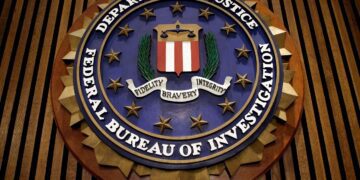Admiral of the Ocean Sea: A Life of Christopher Columbus by Samuel Elliot Morrison
Little Brown and Company, Reissue 1991, 680p
Reviewed by Daniel Brinkman -
Every year as October rolls around you are likely to hear howls of outrage of one sort or another as Columbus Day approaches, should it be instead Indigenous Peoples Day? Should Columbus Boulevard in Downtown Chicago be renamed? Education is so sparse on Columbus and the early explorers that even the most ardent conservative among us may find themselves shaking their head not knowing what to believe.
There are few authors that live and breathe their subject as Samuel Eliot Morison did. To prepare for Admiral of the Ocean Sea he recreated the voyages of Columbus in a similar size ship to see what Columbus saw and experience the voyage as he might have known it. He did all this in a North Atlantic teeming with U-Boats as war began to consume the globe in 1939. His depth of knowledge of all things nautical shines through. The skill of Columbus as a navigator is made comprehensible to those like this reviewer with no seagoing experience.
This is a story of a man driven by a singular idea. All Europe accepted a spherical globe. The Greeks and Egyptians had proven it. But believing that in theory and wagering anything on its practical truth are very different. Yet you can almost sense the hand of providence as you read of Columbus campaigning for his theory of a shorter route to the Indies to the crowned heads of Europe from England to Italy to Spain. He wagered all on this scheme, his reputation was wedded to it. He devoted uncertain years in persuading Ferdinand and Isabella to finance the venture.
At one point, he gave up, and began his journey home dejected. The head of the crown’s finances heard he had left however, and sent after him. He explained to the downcast Columbus that the time was now ripe for Ferdinand and Isabella to reconsider. This courtier’s instincts were true, and the voyage was at last granted. Now the theory Christopher had been preaching for years would prove him either a prophet or a failure. He was given the grand title of Admiral of the Ocean Sea and three small caravels to back up that lofty command.
Columbus was an experienced commander but his men were more divided in their loyalty, Christopher despite his reputation for seamanship was a foreigner. He was the fleet’s commander, but most of the crew were Spanish. His latitude was limited by their trust in him. By October 10th 1492, that trust was nearly exhausted, “here the men lost all patience and complained of the length of the voyage,” the captain’s log notes. Columbus then tried to divert their thoughts to those of riches they would soon find. For the preceding week he could sense their unease and worry building. To keep the pot from boiling over, he had been keeping separate accounts of how far they had traveled on any given day. There was how far they had actually sailed, and a lesser figure he told the crew. The ship’s log dutifully records this falsehood.
After sunset on the following day, land was spotted, and a new Eden was found. The world, forever changed. The natives were friendly, worshipful even, they thought the Spaniards gods. It was a joyful and happy first meeting. Some natives wanted to come with and the crew happily obliged, taking them back with them to learn Spanish and to be shown off to the court of Castile. The crew found many fruits they had never yet tasted, and the old world was introduced to sweet potatoes and the hammock. The natives had some gold, and they happily gave it to these gods appearing in the flesh. From their first landfall at San Salvador the crew spent the next several months in Cuba and then Hispaniola (the Dominican Republic and Haiti presently). In March they finally reached home.
Their first landfall back from their earth shattering voyage was in Portugal, not quite an enemy of Spain but more a rival. The crew disembarked and roused a bleary eyed priest at a small chapel for a service of thanksgiving, their first since changing our conception of the globe. The men showed their lowly station before God wearing only their nightshirts. It was in this state of dress and at this moment, that a Portuguese commander learning of Spanish sailors and caravels on the scene burst upon their moment of thanksgiving and arrested them all in their nightshirts. Columbus salvaged this farcical scene and got his men freed along with himself. Eventually the Portuguese shared in their joy of discovery and congratulated the Admiral and his men.
Back in Spain, Columbus vindicated and triumphant was met and exalted by his sovereigns. He was granted a title, a pension for him and his heirs, and one almost wishes that the curtain closes on the story here. Leave it to others to debase this wonderful feat. But to Columbus, his discovery was not yet complete, he had found land, yes, and plenty of it, but not the lands explained by Marco Polo, perhaps they were over the next horizon?
But alas as Morison shows there was venality in the court of Castile that soured the scene. For context Columbus’ “first voyage cost his sovereigns less than a court ball.” Yet in subsequent voyages Ferdinand and Isabella demanded these ventures be profitable. The drive to yield gold on subsequent voyages colored their dealings with the natives from then and after. They required the Caribs to mine a certain amount of gold per month. And ultimately savagery ended this Eden, when a native killed the first Spaniard.
Despite dutifully trying to find gold among the natives for his monarchs, on his last journey home after discovering the continent of South America, he was not even given an audience with Ferdinand and Isabella. As his health deteriorated, the Admiral of the Ocean Sea, discoverer of half the world, was compelled to debase himself to seek a license to be conveyed around via a mule to ease his gout. Columbus’ enemies whose pride hated a foreigner making such discoveries for their crown, sought in his later years and upon his death to denigrate his memory and discredit his accomplishments.
That no gold artifacts survive from any of these first voyages is a testament to the venality of the Spanish crown. In a supreme irony, the Spanish ultimately found so much gold that its price plummeted in the next century, and the Spanish empire fell into the same traps of perverse incentives that other resource-rich nations have in the last hundred years. Their folly allowed a nation who valued human capital higher, England, to eclipse them and pave the way for all we know and cherish today.
In a later work Morison compares the accomplishment of Columbus to that of the moon landing, On the lunar voyage we knew where we were going and the resources of a nation were employed to get us there, plus, we could see the target. Men like Columbus did not, they navigated using rudimentary math as their primary guide, and sailed most of the way on an ocean their depth soundings determined to have “no bottom.” Yet through faith and fortitude they achieved the impossible.







